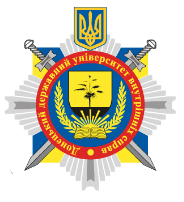PECULIARITIES OF GENDER STEREOTYPES IN THE HIGHER EDUCATION STUDENTS’ ENVIRONMENT WITH SPECIFIC STUDY CONDITIONS
DOI:
https://doi.org/10.32782/2709-9261-2023-2-6-14Keywords:
gender, gender equality, gender stereotypes, higher education institutions with specific study conditionsAbstract
The article is devoted to gender stereotypes of higher education students with specific study conditions. The results of a sociological survey of male and female cadets of the Donetsk State University of Internal Affairs are analyzed basing on the modified Promundo and ICRW questionnaire and the research methodology of the Ministry of Social Policy of Ukraine with the support of UNFPA. The relevance of research studying is emphasized in various aspects of the standards introduction of rights and freedoms equality of all sexes and genders, prevention of gender discrimination, new approaches to sexual and gender culture, definition and creation of the future taking into account gender policy. The need for purposeful formation of police communicative and gender competence in the professional training system is emphasized. It is noted that today it is the fight against gender stereotypes that is relevant in the context of gender equality. It is claimed that the traditional, mostly sexist perception of masculine and feminine prevails in society to this day, that society does not always notice and respond adequately to manifestations of gender inequality, because there is a certain idea about male and female roles, a stereotype of perception. A number of problems in the context of gender equality are emphasized. Firstly, within the framework of sociological research, women feel more confident and free, and take an active civic position. Secondly, if at the level of the legislative framework, modern Ukraine does not have problems with gender equality, then in reality there is gender inequality in relation to the female sex. In terms of family life, distribution of powers and resources, the vast majority of respondents focus on mutual respect and joint decision-making. In terms of professional life, the situation is sexist. The majority of male respondents welcome the presence of gender perception of professions, the division into purely «male» and «female», they insist on the professionalism of men in particular. Thirdly, there is a biased attitude towards women as victims of gender-motivated and sexual violence.
References
Аналітичне дослідження участі жінок у складі робочої сили України : звіт. Київ : Фонд народонаселення ООН, 2012. 212 с.
Волосевич І., Поднос В. Чим керуються українці та українки при виборі професії: результати національного дослідження щодо ключових чинників та стереотипів. URL: https://ukraine.unfpa.org/uk/gender_career_choices (дата звернення: 01.08.2023).
Дослідження, проведені в рамках підготовки восьмої періодичної доповіді про виконання Україною конвенції ООН «Про ліквідацію всіх форм дискримінації щодо жінок». Київ : Міністерство соціальної політки України, 2014. 106 с.
Сучасне розуміння маскулінності: ставлення чоловіків до гендерних стереотипів та насильства стосовно жінок. Київ : UNFPA – Міністерство соціальної політки України, 2018. 128 с.
Global Gender Gap Report 2023. URL: https://www.weforum.org/reports/global-gender-gap-report-2023/?gclid=CjwKCAjwzo2mBhAUEiwAf7wjkv_WqBUe-8bcvSH5pxO77AgYbVhAkTNb-t-e8S_NB5oWaMbrS4HrehoC_LIQAvD_BwE (дата звернення: 01.08.2023).
Lockwood D. & Prohaska A. Police Officer Gender and Attitudes toward Intimate Partner Violence: How Policy Can Eliminate Stereotypes. International Journal of Criminal Justice Sciences. 2015. № 10(1). Р. 77–90.





